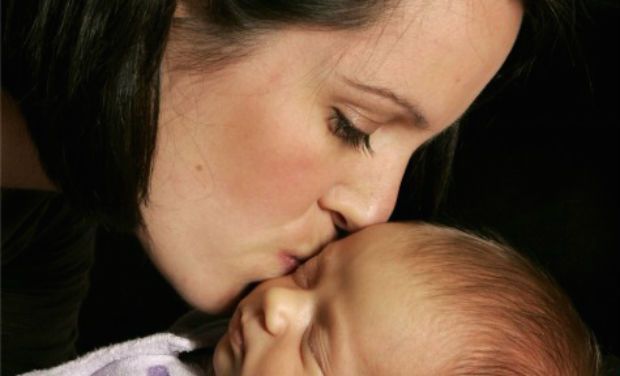Many new mothers do not receive advice from their doctors on infant care, including sleep positions, breastfeeding, and immunization, according to a new survey from the Boston Medical Center and Yale University.
“Earlier studies have shown that new mothers listen to their physicians,” Marian Willinger, PhD, of the Pregnancy and Perinatology Branch at NIH’s Eunice Kennedy Shriver National Institute of Child Health and Human Development, said in a NIH news release. “This survey shows that physicians have an opportunity to provide new mothers with much-needed advice on how to improve infant health and even save lives.”
For the study, researchers surveyed 1031 women from 32 hospitals around the country. Participants were asked to complete the questionnaires when their children were between 2 months and 6 months old on advice they had received from their baby’s doctor, nurses at the hospital where they gave birth, family members and news media.
Question topics included vaccines, breastfeeding, pacifier use, sleeping position and where the infant slept. The questionnaire was also designed to gather information on whether the advice the women received was consistent with the recommendations of practitioner groups such as the American Academy of Pediatrics (AAP).
Survey results showed that about 20 percent of the participants did not get advice from their doctor on breastfeeding or sleeping their infants on their backs – an AAP-recommended practice since 1992 proven to prevent sudden infant death syndrome (SIDS). More than 50 percent of the mothers received no information about where their infants should sleep – sharing a room with their parents, but not in their bed.
The research team found that African-American and Hispanic women were more likely to get advice from their doctors than white women, and new mothers were more likely to receive advice than women with two or more children.
The doctors’ advice, when given, tended to be consistent with accepted recommendations, but 10 percent to 15 percent of the advice provided on breastfeeding and pacifier use was not. In addition, about 25 percent of the advice on sleep position and location was inconsistent with accepted recommendations.
As for sources of information, most of the women got their advice from physicians, but 30 percent to 60 percent also got advice from family members, depending on the topic. Family advice, the researchers found, went against AAP recommendations two-thirds of the time.
Less than half the women used the media as a source of information, except for breastfeeding, when the number climbed to 70 percent. Much of this information did not match AAP recommendations. The study also found that more than 25 percent of the women who received advice about vaccines from media got information that did not comply with recommendations.
“As a physician, these findings made me stop and really think about how we communicate important information to new parents,” the study’s first author Staci R. Eisenberg, MD, a pediatrician at Boston Medical Center, said in the news release.
“We need to be clearer and more specific in telling new mothers about safe sleep recommendations. From a public health perspective, there is a real opportunity to engage families and the media to promote infant health,” Eisenberg added.
Acknowledging that there is room for improvement on the part of health care professionals, Eisenberg encouraged parents and caregivers to ask questions if they do not feel their provider has been entirely clear, or if they have questions about practitioner-group recommendations.








